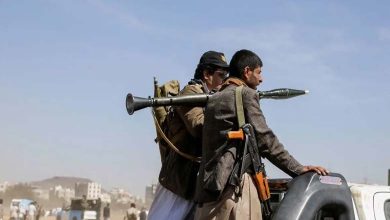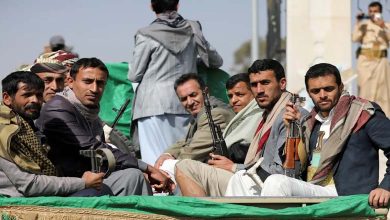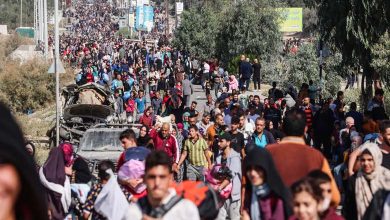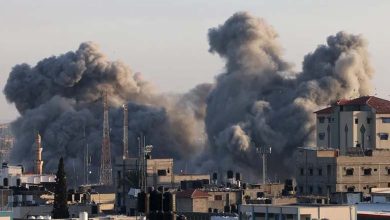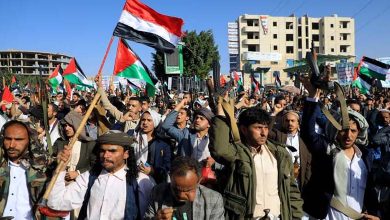200 million dollars earned by the Houthi rebels from Hodeidah port in a year

The Yemeni Minister of Information confirmed that 157 fuel ships arrived at the port under the control of the Iran-backed group since the ceasefire began in April 2022. The Yemeni government revealed on Friday the amount of revenue that the Houthi group obtained from oil derivatives imported through Hodeidah port (west), which has been under their control since the start of the ceasefire in April 2022, confirming that it reached about 200 million dollars after the arrival of 157 fuel ships at the port.
Yemeni Minister of Information, Mouammar al-Eryani, stated that “157 oil-laden ships were allowed to enter and unload their cargo at Hodeidah port since the announcement of the UN ceasefire in early April 2022.”
In a statement published by the official news agency “Saba,” he explained that the ships “unloaded about 4,098,067 metric tons of oil derivatives.”
He pointed out that the Houthi group “collected 200 billion Yemeni rials (about 200 million dollars) from the revenue of fuel entering the port.”
Al-Eryani accused the Houthi group of “misleading” the Yemeni public opinion and the international community regarding its profits from oil derivatives, and considered that these revenues “are sufficient to cover the salaries of state employees and retirees regularly in the areas controlled by the group.”
He noted that the Houthi group “imposes 120 dollars in taxes and customs duties per ton of oil derivatives imported through Hodeidah port, which is equivalent to 50 Yemeni riyals per liter, with a total of (200 billion Yemeni rials) collected by the militia from the quantities imported to Hodeidah port since the start of the UN ceasefire.”
He pointed out that “these figures are limited only to the direct revenues that the Houthi militia obtained during a year and a half of the ceasefire from oil derivatives imported through Hodeidah port, unlike the billions that it earns from the tax and customs duties imposed on food and consumer goods, and the free gas shipments coming from Iran through the port.”
Al-Eryani called on the international community, the United Nations, and the permanent member states of the Security Council to leave the silence and fulfill their duties in pressuring the Houthi militias to stop the policy of hunger and deliberate impoverishment of citizens, and to allocate the revenues of all ships entering Hodeidah port to pay the salaries of state employees.
The file of salaries for employees in the government sectors in the areas under the control of the Houthi group is considered one of the prominent obstacles that hinder progress and reach an agreement between the Yemeni government and the Houthis, which has led to the non-renewal of the UN-sponsored ceasefire in the country.
The legitimate government stipulates that all financial revenues in the areas controlled by the Houthis be transferred to the Central Bank in Aden, in exchange for delivering salaries to employees in the areas under the group’s control.
However, the Houthi group insists that “salaries are supposed to be distributed throughout Yemen from the oil and gas revenues controlled by the government.”
Last Wednesday, a prominent leader in the group and a member of the so-called Supreme Political Council, Mohammed Ali al-Houthi, attacked those who demand the disbursement of salaries and described them as “overbidders,” accusing them of being “far from defending the homeland,” forgetting the steadfastness of all state employees without salaries for 7 years.
He claimed in a tweet on his account on Twitter that those who demand salaries “cannot portray themselves as the savior.”
The ceasefire in Yemen, which began in April 2022 and was extended until October 2 of the same year, succeeded in partially operating Sanaa Airport and opening Hodeidah port to commercial ships after a stoppage of more than 7 years.
Since then, regional and international efforts have intensified to achieve a comprehensive political solution to the crisis in Yemen, including visits by Saudi and Omani delegations to Sanaa, in addition to various UN and international movements to push forward the peace process.
Yemen has been suffering from a war between the forces loyal to the legitimate government and the Houthi group controlling provinces including the capital, Sanaa, since 2014.


